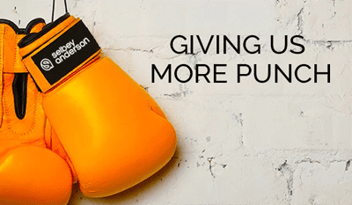Facebook’s new algorithm is changing your News Feed – How will it affect advertisers and publishers?
By Burn •
- Digital
During the past ten years, nearly 300 print titles have unceremoniously disappeared from the news shelves. Meanwhile, social media and our subsequent mobile addiction have managed to carve an idiosyncratic space in the foreground of our everyday. Whilst rapid digitalisation has created a new world of pioneering developments for many industries, the potent tenacity of Silicon Valley has also opened a new world of trouble for publishers. Now, as an industry which has been forced to remain vigilant and whose resources have already suffered permanent damage – things are about to get tricky once more, as media outlets are forced to re-examine their efforts for organic reach.
As any seasoned marketer knows, complacency kills. However, it’s easy to get comfortable, to put all your eggs in one basket. With the announcement of Facebook’s new algorithm, publishers have learned the hard way: when you rely heavily on one specific platform or channel, the future of your business is no longer in your hands. Publishers were previously instructed to invest valuable time and money on Facebook Instant Articles and News Feed videos, but in the aftermath of the ‘fake news’ epidemic and the ever-avaricious hunger for ad revenue, most publishers have started a new year faced with a harsh truth on the relationship they have with the behemoths of tech.
Facebook will indeed be making updates to its News Feed that will unduly change how the platform operates for publishers. This updated News Feed will now split social and media, as an attempt to refocus its attention on the user experience by prioritising posts from friends. All of this is at the expense of public content, such as that from news and media outlets.
Mark Zuckerberg announced the update, remarking: “I’m changing the goal I give our product teams from focusing on helping you find relevant content to helping you have more meaningful social interactions.” Zuckerberg also noted that “the time people spend on Facebook and some measures of engagement will go down.” However, reversely the time we spend on Facebook will become “more valuable.” But in the land of gods and monsters, how do we beat the Facebook-Google duopoly?
Some local publishers, such as The Ferret in Scotland, are already primed to fight back. Within a digital, community-based news site (remindful of an early Twitter), voracious journalists (funded by paying supporters) are urged to investigate, report, and initiate campaigns on local issues – a non-partisan approach to keeping grassroots journalism alive, whilst earning a decent profit in the meantime. New media outlets, which don’t have the same financial difficulties as their small-fry rivals, have also worked steadily to diversify their strategy. Raising a proverbial middle finger to Instant Articles and News Feed video, Ad Age has developed a chatbot on Messenger which distributes curated content directly to the hands of their readers. Buzzfeed has launched a campaign enticing its loyal following away from Facebook and straight to the Buzzfeed app, where push notifications will ping audience-specific content at regular intervals.
Every cloud has a silver lining, and publishers will finally break free from their reliance on Facebook by seeking new and innovative ways to diversify their revenue streams. Social media has always been in the hands of the user, and so long as the public has a thirst to keep the news in its various feeds, whether its Groups, bespoke platforms or standalone apps, it will endure. If publishers can expertly shift from mass broadcasting to granular communications within a devoted community, and diversification without neglecting core business, publishing won’t just exist – it may even flourish.


